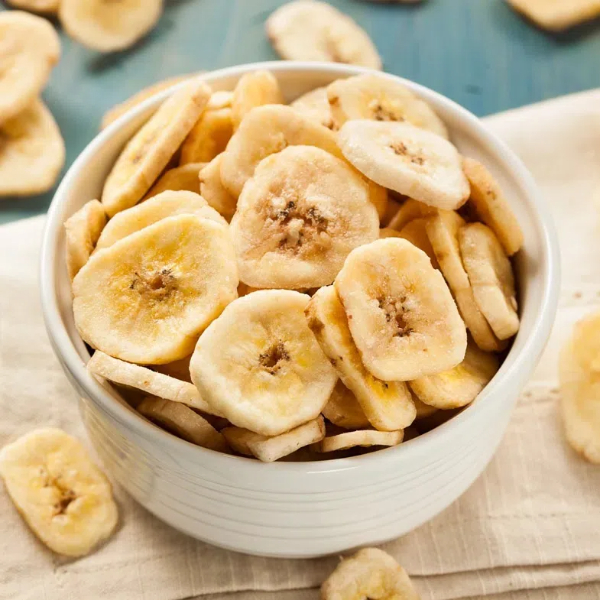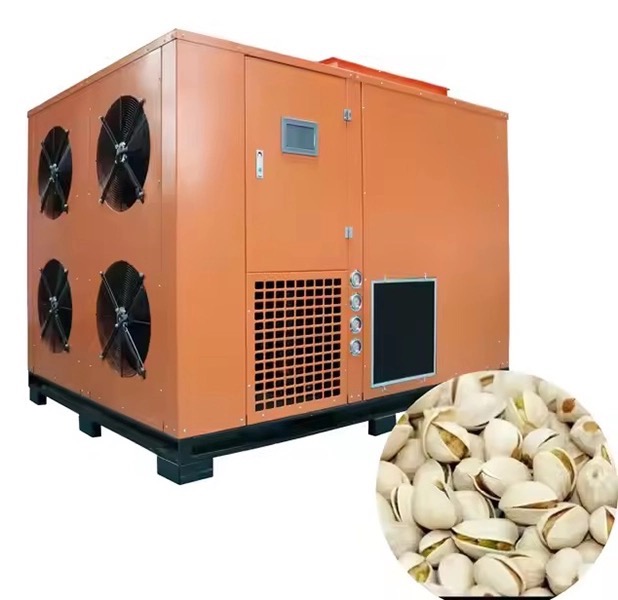
Content Menu
● Understanding Food Dehydrators
>> Types of Food Dehydrators
● Energy Consumption Calculation
>> Example Calculation
● Average Energy Usage
● Benefits of Using a Food Dehydrator
● Popular Foods to Dehydrate
● Tips for Reducing Energy Consumption
● Environmental Impact
● Conclusion
● FAQ
>> 1. How much does it cost to run a food dehydrator for one hour?
>> 2. Can I dehydrate food overnight?
>> 3. What foods can I dehydrate?
>> 4. Are there health benefits to using a food dehydrator?
>> 5. How do I clean my food dehydrator?
● Citations:
Food dehydrators have gained popularity as an efficient way to preserve food, allowing users to create healthy snacks and reduce food waste. However, many potential users often wonder about the energy consumption of these appliances. This article explores how much electricity a food dehydrator uses in the UK, the costs associated with its operation, and tips to maximize efficiency.

Understanding Food Dehydrators
Food dehydrators work by removing moisture from food, which inhibits the growth of bacteria and mold. This process involves circulating warm air around the food at low temperatures for extended periods. The energy consumption of a food dehydrator varies based on its wattage, usage time, and the specific model.
Types of Food Dehydrators
- Stackable Dehydrators: Typically use between 500 to 1000 watts. These models consist of multiple trays stacked on top of each other, allowing for a larger quantity of food to be dried at once.
- Box-and-Shelf Dehydrators: Generally more powerful, consuming between 800 to 1500 watts. These units often have more advanced features such as temperature control and built-in timers.
The wattage indicates how much electricity the unit will draw when in operation. For example, a dehydrator rated at 800 watts will consume 0.8 kilowatts per hour (kWh) when running continuously.
Energy Consumption Calculation
To understand how much electricity a food dehydrator uses, it's essential to calculate its energy consumption based on its wattage and usage duration.
1. Determine the Wattage: Check the dehydrator's specifications for its wattage.
2. Calculate kWh Usage: Use the formula:
kWh = Wattage x Hours Used/1000
3. Calculate Cost: Multiply the kWh by your local electricity rate (in pence per kWh). For example, if your electricity rate is £0.15 per kWh:
Cost = kWh x Rate
Example Calculation
If you use a 600-watt dehydrator for 12 hours:
kWh = 600 x 12/1000 = 7.2 kWh
If your electricity cost is £0.15:
Cost = 7.2 x 0.15 = £1.08
Average Energy Usage
Based on various models and user experiences:
- Lower Wattage Models (500W): Costs approximately £0.10 to £0.20 per hour depending on usage.
- Higher Wattage Models (1000W): Can cost between £0.15 to £0.30 per hour.
Benefits of Using a Food Dehydrator
Using a food dehydrator not only helps in preserving food but also offers several benefits:
- Cost Savings: Making your dried fruits and vegetables can save money compared to buying pre-packaged products.
- Healthier Options: You control what goes into your snacks, avoiding preservatives and added sugars.
- Reduced Waste: Dehydrating surplus fruits and vegetables minimizes waste by extending their shelf life.
- Versatility: Food dehydrators can be used for various foods including fruits, vegetables, herbs, meats for jerky, and even making yogurt or fruit leathers.

Popular Foods to Dehydrate
Here's a look at some popular foods that can be easily dehydrated:
- Fruits: Apples, bananas, strawberries, mangoes, and pineapples are favorites among home dehydrators.
- Vegetables: Carrots, bell peppers, zucchini, and tomatoes can be dried for use in soups or stews.
- Herbs: Basil, oregano, thyme, and parsley can be dried and stored for later use in cooking.
- Meats: Jerky made from beef, turkey, or chicken is a popular snack that can be made at home.
Dehydrating these foods not only preserves them but also intensifies their flavors, making them delicious snacks or cooking ingredients.
Tips for Reducing Energy Consumption
To maximize efficiency and minimize costs while using a food dehydrator:
- Dehydrate in Batches: Fill the dehydrator fully to make the most of each cycle. This ensures that you are using the energy effectively by drying as much food as possible at once.
- Use Off-Peak Hours: Run your dehydrator during off-peak electricity hours when rates may be lower. Many energy providers offer cheaper rates during specific times of day.
- Choose Efficient Models: Look for energy-efficient dehydrators that use less wattage but still perform effectively. Models with timers and temperature controls can help you avoid over-drying food and wasting energy.
- Maintain Your Appliance: Regular cleaning ensures optimal performance and energy efficiency. Dust buildup can affect airflow and heating efficiency.
Environmental Impact
Using a food dehydrator can also have positive environmental impacts:
- Reduced Packaging Waste: By making your own dried snacks at home, you reduce reliance on store-bought products that often come with excessive packaging.
- Less Food Waste: Dehydrating surplus produce helps prevent spoilage and waste, contributing to a more sustainable lifestyle.
Conclusion
Food dehydrators are an excellent investment for anyone looking to preserve food efficiently while saving money in the long run. Understanding how much electricity they use can help users make informed decisions about their operation and costs associated with running them in the UK. By choosing energy-efficient models and employing smart usage strategies, you can enjoy delicious homemade snacks while being mindful of your energy consumption.

FAQ
1. How much does it cost to run a food dehydrator for one hour?
The cost can range from £0.10 to £0.30 depending on the model's wattage and local electricity rates.
2. Can I dehydrate food overnight?
Yes, many models allow for extended drying times, making it convenient to dehydrate overnight or while you're away from home.
3. What foods can I dehydrate?
You can dehydrate fruits, vegetables, meats (for jerky), herbs, and even some dairy products like yogurt.
4. Are there health benefits to using a food dehydrator?
Yes! Dehydrating your own food allows you to control ingredients, ensuring healthier snacks without preservatives or added sugars.
5. How do I clean my food dehydrator?
Most models have removable trays that can be washed with soap and water or placed in a dishwasher for easy cleaning.
Citations:
[1] https://www.slashplan.com/food-dehydrator-energy-calculator-cost-and-kwh-usage/
[2] https://www.mitchellcooper.co.uk/what-is-a-dehydrator-commercial-buying-guide
[3] https://decembearduk.org/viewtopic.php?t=15417
[4] https://www.freepik.com/photos/food-dehydrator
[5] https://www.youtube.com/watch?v=mtDzdYoyeR8
[6] https://www.youtube.com/watch?v=lEUA2t2XD5M
[7] https://www.dryitcanit.com/post/the-lowdown-on-the-cost-of-running-a-food-dehydrator
[8] https://www.goodhousekeeping.com/uk/product-reviews/latest-news/a669491/is-a-food-dehydrator-worth-buying/
[9] https://www.freepik.com/free-photos-vectors/food-dehydrator
[10] https://www.youtube.com/watch?v=rR2G5UO-5Ms
[11] https://www.cooksprofessional.co.uk/product/food-dehydrator/
[12] https://www.mitchellcooper.co.uk/media/wysiwyg/excalibur-dehydrator.webp?sa=X&ved=2ahUKEwif-p_c_uyKAxVel-4BHZBwBcIQ_B16BAgLEAI
[13] https://www.ukjuicers.com/info/dehydrator-faqs-a603
[14] https://www.aimheatpump.com/a-news-how-much-electricity-does-a-food-dehydrator-use-uk
[15] https://www.reddit.com/r/dehydrating/comments/10aelr7/how_do_i_calculate_the_power_usage_of_my/
[16] https://www.thepurposefulpantry.com/cost-to-run-a-dehydrator/
[17] https://www.mitchellcooper.co.uk/media/wysiwyg/excalibur-dehydrator.webp?sa=X&ved=2ahUKEwjVp6Dc_uyKAxUvM9AFHcrTFhMQ_B16BAgMEAI
[18] https://www.linkedin.com/pulse/impact-dehydrator-usage-your-electricity-bills-dehydrated-foodz-xkdxe
[19] https://www.youtube.com/watch?v=Zl4wTcCPJu0
[20] https://www.youtube.com/watch?v=m1K2mbk8WZo
[21] https://www.istockphoto.com/de/bot-wall?returnUrl=%2Fde%2Fphotos%2Ffood-dehydrator
[22] https://www.youtube.com/watch?v=JRArvU4PDVc
[23] https://www.youtube.com/playlist?list=PL6ygl2lNPriNba8uvd65PjMp5bbmci5KS
[24] https://stock.adobe.com/search?k=dehydrator
[25] https://www.youtube.com/watch?v=9DSGcVhjHEc
[26] https://www.pinterest.com/smallkitchenap2/dehydrators/
[27] https://www.youtube.com/watch?v=cXtcaozMLfw
[28] https://www.youtube.com/playlist?list=PL71uE0jHe7onrQE-Q4rCTbbDOkRVl7cQu
[29] https://www.facebook.com/dazzlehub37/videos/bosch-food-dehydratorfood-dehydrator-is-used-to-remove-moisture-from-food-restra/324682949057873/
[30] https://www.cooksprofessional.co.uk/product/9-tier-electric-food-dehydrator-digital-control-panel-for-effortless-operation-cooks-professional/
[31] https://dehydratorreview.net/articles/how-much-does-it-cost-dehydrate-food
[32] https://www.youtube.com/watch?v=64WH8htwH20
[33] https://www.istockphoto.com/de/bot-wall?returnUrl=%2Fde%2Fphotos%2Fdehydrator











